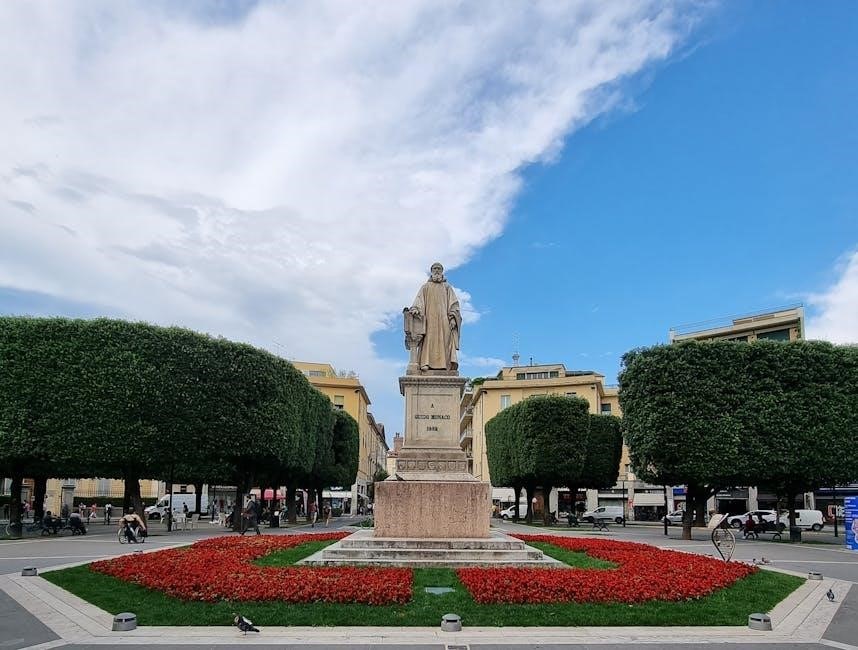
Guido Orefice: A Character Analysis
Guido Orefice‚ portrayed by Roberto Benigni‚ is the heart of “Life is Beautiful․” He is a Jewish-Italian man whose infectious optimism and humor define his character․ His journey begins in Tuscany‚ full of dreams․
Guido Orefice‚ the protagonist of “Life is Beautiful‚” is a character who embodies joy and resilience․ Arriving in Arezzo‚ Tuscany‚ in 1939‚ he brings with him a unique blend of comical charm and sharp wit․ A Jewish Italian‚ he is portrayed by Roberto Benigni‚ who captures Guido’s ability to find magic in the mundane․
Guido’s aspirations‚ like owning a bookstore‚ are challenged by the rising tide of fascism․ Despite this‚ he relentlessly pursues his dreams and his love for Dora‚ a Gentile woman․ Guido’s character is a testament to the power of imagination‚ love‚ and the unwavering human spirit․ He is a simple man‚ but with extraordinary ability to make his surroundings magical․
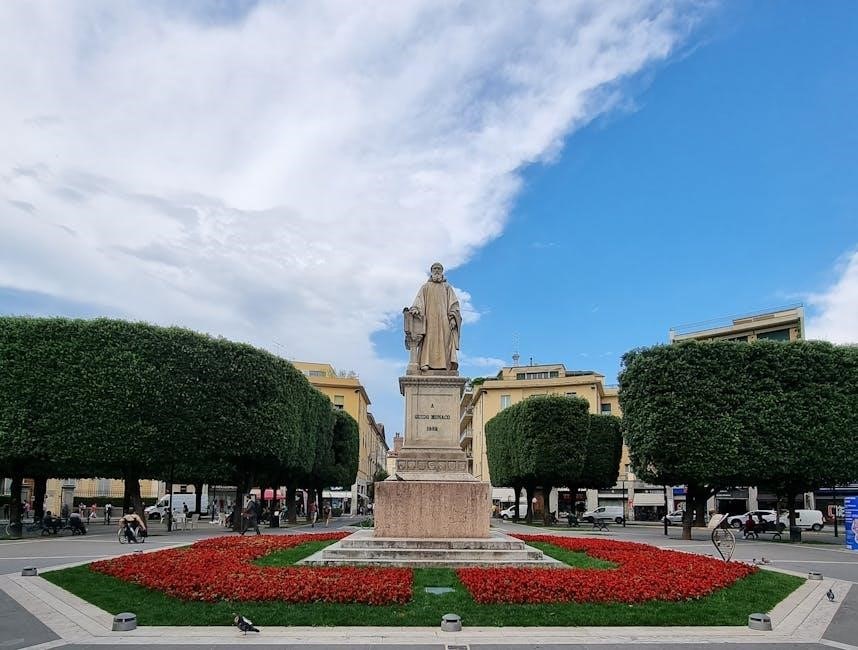
The Portrayal by Roberto Benigni
Roberto Benigni’s depiction of Guido Orefice is central to the film’s success․ He embodies Guido with a Chaplin-esque dreaminess‚ using his wit and physicality to create a character that is both comical and deeply human․
Benigni’s Interpretation of Guido
Benigni’s interpretation of Guido infuses the character with a unique blend of comedic timing and heartfelt emotion․ He doesn’t just play Guido; he embodies him‚ capturing his zest for life and his unwavering optimism․ Benigni frames Guido as an ‘everyman’․
Through expressive gestures and playful antics‚ Benigni makes Guido’s charm irresistible․ He highlights Guido’s intelligence and clownish nature․ Crucially‚ Benigni portrays Guido’s love of life as a driving force‚ both in his romantic pursuits and his efforts to shield his son from the horrors of war․ This love becomes the film’s central theme․
Benigni shows Guido’s resourcefulness‚ showcasing how he manipulates situations with a smile․ He balances the character’s lightheartedness with moments of profound vulnerability‚ creating a multi-layered portrayal that resonates deeply with the audience․
Benigni as Director and Actor
Roberto Benigni’s dual role as both director and actor in “Life is Beautiful” is pivotal to the film’s success․ As director‚ he crafts a narrative that seamlessly blends comedy and tragedy‚ creating a backdrop for Guido’s character to shine․ As actor‚ he embodies Guido with unparalleled passion․
Benigni’s direction allows him to shape the film’s tone and pacing‚ ensuring that Guido’s humor never diminishes the gravity of the situation․ His intimate understanding of the character allows for nuanced performances․
His direction allows Nicoletta Braschi‚ his wife‚ to show all of her acting talent․ Benigni’s direction amplifies Guido’s impact on the audience‚ creating a powerful and unforgettable cinematic experience․ Ultimately‚ Benigni’s vision makes the movie a success․ He plays the character just right․
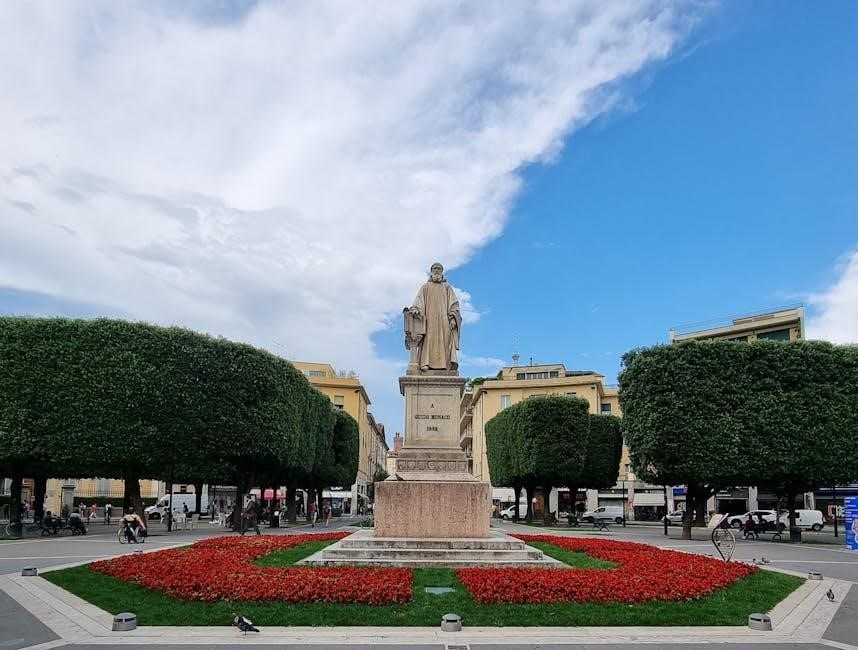
Guido’s Character Traits
Guido Orefice possesses a unique blend of optimism‚ humor‚ intelligence‚ and childlike innocence․ These traits are evident throughout the film‚ shaping his interactions and reactions to adversity․
Optimism and Humor in the Face of Adversity
Guido Orefice’s defining characteristic is his unwavering optimism‚ even when confronted with the horrors of Nazi internment․ He uses humor as a defense mechanism‚ shielding himself and his son‚ Giosué‚ from the harsh reality around them․ This is the most important thing‚ that the child will stay happy․
He transforms the concentration camp into a game‚ convincing Giosué that they are competing for points to win a tank․ Guido’s playful interpretation of the camp rules and his constant jokes create a buffer‚ allowing Giosué to maintain his innocence amidst the suffering․
This isn’t just about keeping Giosué safe‚ it’s his love for life that keeps him going․ Even in the darkest moments‚ Guido finds ways to inject levity‚ demonstrating the power of optimism as a tool for survival․
Guido’s Love for Life
Guido Orefice’s love for life is the driving force behind his actions in “Life is Beautiful․” It’s not merely a passive appreciation‚ but an active embrace of every moment‚ even in the face of adversity․ This love fuels his humor‚ his optimism‚ and his determination to protect his son․
He approaches life with a childlike wonder‚ finding joy in simple things and transforming ordinary situations into magical experiences․ This enthusiasm is infectious‚ drawing Dora to him and creating a vibrant world for Giosué․
Even when confronted with the horrors of the concentration camp‚ Guido clings to his love for life․ He uses his imagination to create a world of fantasy for Giosué‚ shielding him from the reality of their situation and preserving his innocence․ Guido’s love is not just about survival; it’s about living fully‚ even in the face of death․
Intelligence and Childlike Nature
Guido Orefice embodies a unique blend of sharp intelligence and a childlike spirit․ He’s not just a clown; he’s a clever and quick-witted individual who uses his mind to navigate challenging situations and create imaginative scenarios․ His intelligence allows him to observe the world around him and adapt to the ever-changing circumstances․
At the same time‚ Guido possesses a childlike wonder and innocence․ He approaches life with a sense of playfulness‚ finding joy in simple things and creating magical moments for those around him․ This combination of intelligence and childlike nature allows him to see the world from a unique perspective․
He is both insightful and naive‚ serious and playful․ This duality is at the heart of his charm‚ allowing him to connect with people of all ages and backgrounds․ It is this blend that makes him so endearing․
Guido’s Relationships
Guido Orefice’s life is defined by his relationships․ His love for Dora and his son‚ Giosué‚ shapes his actions and defines his purpose‚ showcasing devotion․
Relationship with Dora
Guido’s relationship with Dora‚ a gentile school teacher‚ is a central and enchanting aspect of “Life is Beautiful․” His pursuit of Dora is marked by whimsical gestures and playful charm‚ reflecting his free spirit․ He nicknames her “Principessa‚” and his love for her is demonstrative‚ filled with light and hope․ Guido’s affectionate pursuit eventually wins Dora’s heart․
Dora‚ initially betrothed to another‚ is drawn to Guido’s genuine nature․ Their bond transcends social and religious barriers‚ creating a love that is both unconventional and beautiful․ Even in the concentration camp‚ their connection remains‚ fueling Guido’s determination to protect their son․
Their relationship is a symbol of love’s power to overcome adversity‚ demonstrating that even amidst the darkest times‚ affection and devotion can endure‚ giving strength and purpose․
Relationship with Giosué
Guido’s relationship with his son‚ Giosué‚ is the emotional core of “Life is Beautiful․” His love for Giosué is the driving force behind his actions‚ especially when they are imprisoned in a concentration camp․ To shield Giosué from the horrors around them‚ Guido creates an elaborate game‚ convincing him that the camp is a contest with a grand prize․
Guido’s imagination transforms their bleak reality into an adventure for Giosué‚ preserving his innocence and hope․ He uses humor and optimism to maintain the illusion‚ ensuring Giosué remains unaware of the true danger․ This selfless act of love highlights Guido’s dedication to his son’s well-being․
Their bond is a testament to the power of a father’s love‚ showing how far one will go to protect their child from the harsh realities of the world;
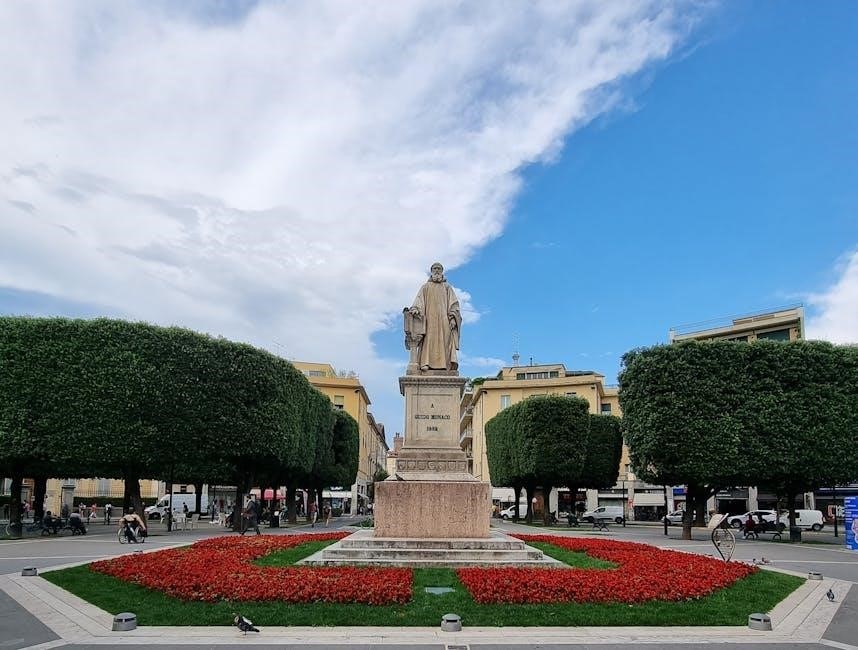
Guido’s Role in ‘Life is Beautiful’
Guido’s role is central‚ driving the narrative with his humor and love․ He protects his son from the Holocaust’s horrors by creating a game‚ showcasing resilience and sacrifice in unimaginable circumstances․
Protecting Giosué from the Horrors of War
Guido’s most poignant role is shielding his son‚ Giosué‚ from the Holocaust’s atrocities․ Interned in a Nazi concentration camp‚ Guido crafts an elaborate game to disguise their grim reality․ He uses his imagination and storytelling to convince Giosué that their situation is merely a competition‚ with the grand prize being a tank․
This act of love and sacrifice allows Giosué to maintain his innocence and hope amidst unimaginable suffering․ Guido’s playful demeanor and unwavering optimism become a shield‚ deflecting the horrors of war from his son’s understanding․ He translates the camp’s events into challenges‚ turning fear into excitement and despair into anticipation․ By creating this alternate reality‚ Guido safeguards Giosué’s mental and emotional well-being‚ offering a beacon of light in the darkest of times․
Guido’s Imagination as a Shield
Guido’s most potent weapon against the Nazi regime is his boundless imagination․ He transforms the concentration camp into a game‚ shielding his son‚ Giosué‚ from the brutal reality․ His creativity allows him to reframe terrifying events into playful challenges‚ thus protecting Giosué’s innocence․
He invents rules‚ points systems‚ and rewards‚ convincing Giosué that their survival depends on winning this elaborate game․ Guido’s imagination enables him to control the narrative‚ turning the camp’s horrors into an adventure․ He uses humor to diffuse tense situations‚ creating a buffer between Giosué and the surrounding cruelty․ This imaginative shield not only protects Giosué but also empowers Guido to maintain hope and resilience in the face of unimaginable adversity․ His ability to transform reality becomes a lifeline for both of them․
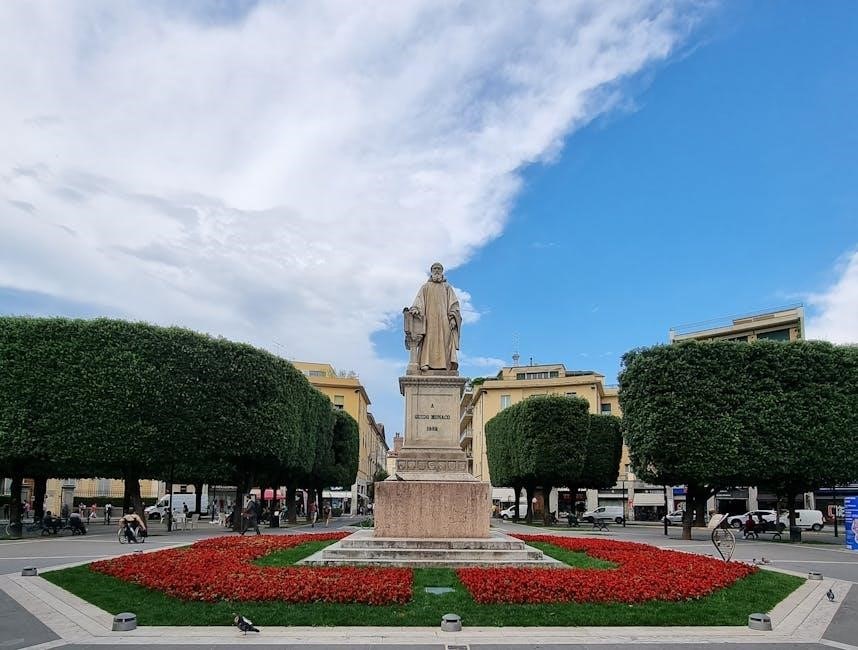
The Significance of Guido Orefice
Guido Orefice represents hope and resilience amidst despair․ His character embodies the power of imagination and love to overcome even the most horrific circumstances‚ leaving a lasting impact․
A Symbol of Hope and Resilience
Guido Orefice stands as a potent symbol of hope in the face of unimaginable adversity․ His unwavering optimism‚ even when confronted with the horrors of a Nazi concentration camp‚ is truly remarkable; He uses humor and imagination to shield his son‚ Giosué‚ from the grim reality‚ creating a game out of their internment․ This act of love and selflessness transforms their suffering into a testament to the human spirit’s ability to endure․
Guido’s character inspires viewers to find light in darkness and to believe in the power of hope‚ even when all seems lost․ He embodies the resilience needed to persevere through challenging times․ His legacy reminds us that even in the darkest of circumstances‚ love and laughter can prevail․ He represents the best of humanity’s capacity for compassion and strength․
Guido’s Sacrifice
Guido Orefice’s ultimate act of love is his profound sacrifice․ Knowing the imminent danger‚ he dedicates himself to protecting his son‚ Giosué‚ from the horrors of the concentration camp․ He perpetuates the illusion of a game‚ shielding Giosué from the brutal reality around them‚ even when it demands the ultimate price․ His clownish antics and fabricated stories become a shield‚ safeguarding Giosué’s innocence․
In the film’s climax‚ Guido is captured‚ yet he uses his final moments to maintain the charade․ He bravely marches past Giosué‚ winking and acting silly‚ reinforcing the game until the very end․ This is his final act‚ a deliberate choice to ensure his son’s emotional survival․ Guido’s sacrifice speaks volumes about a father’s boundless love and willingness to do anything for his child․